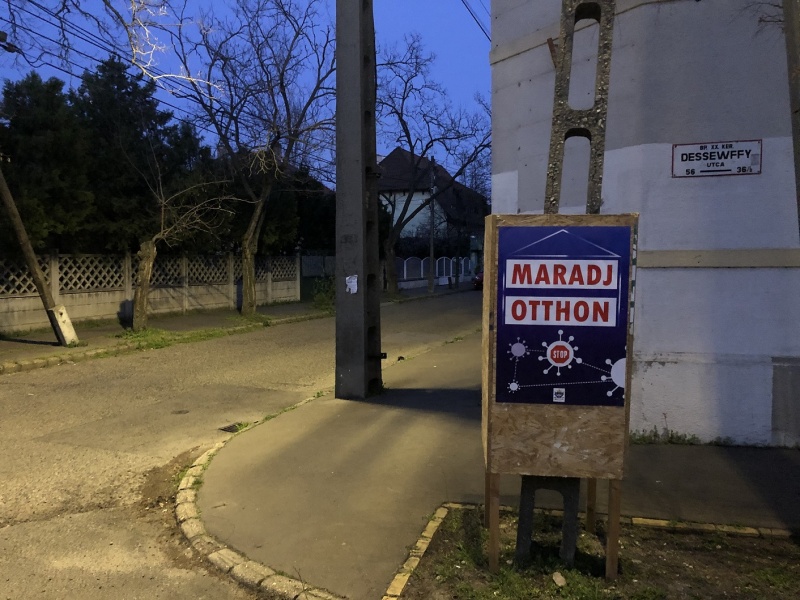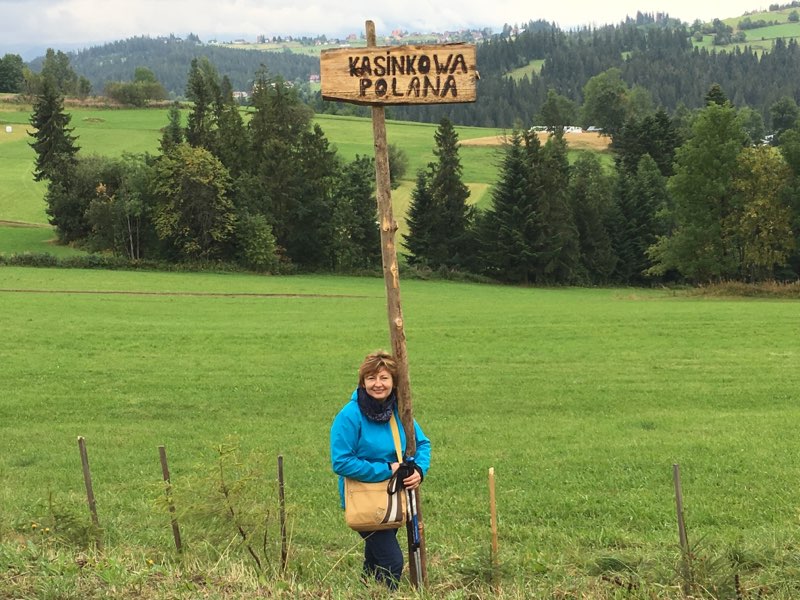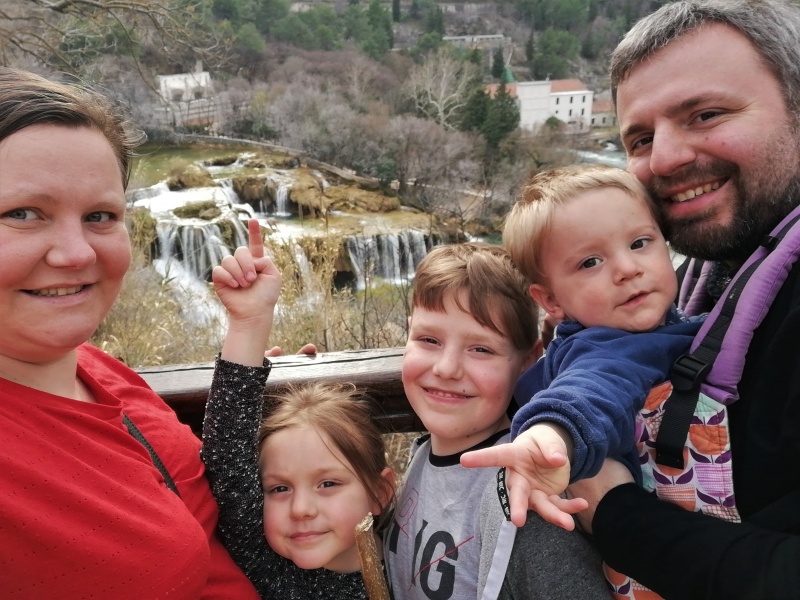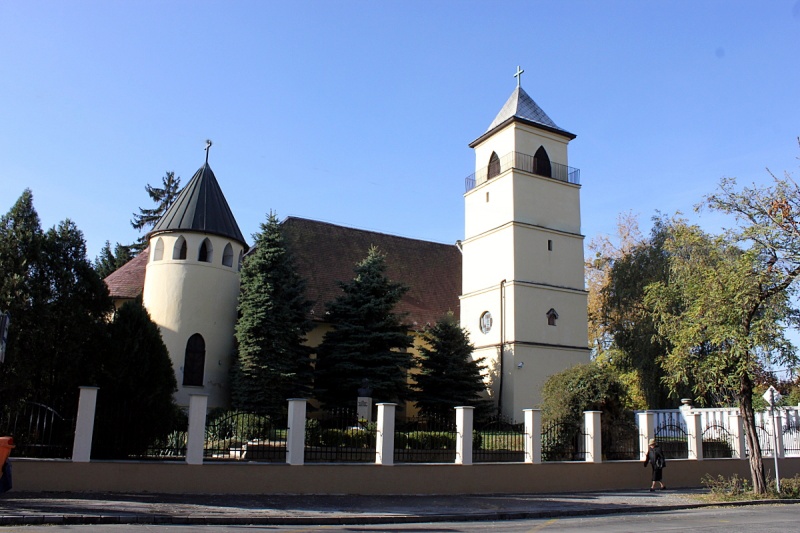On the 11th of March, the Prime Minister of Hungary, Viktor Orbán, declared a state of emergency within the state, which has been prolonged for an indefinite period. Nobody knows, how long the limitations, and difficulties, caused by the epidemic, will have to be endured. The Poles living in Hungary, have also been affected with all the other citizens.

EMPTY SHELVES, EMPTY STREETS
The Poles from Budapest, tell us about how life has changed from day to day. Katarzyna Takácsné Kalińska, who has been living in Hungary for 30 years: “During the first days, there was slight panic. On the second day there were already empty shelves in the shops. The people bought all the sugar, rice, flour, noodles, canned food, cleaning supplies. There was shortage of meat.” “In Hungary, the effect was similar to the one we saw in Poland. I’ve never seen the shops emptied in such a way. All the products that can be stored for longer, are gone.” – Says Piotr Kaczmarek, who has been living in the Hungarian capital for 8 years. “I haven’t been able to buy oil for two days. I visited a few shops, trying to find it. Generally, we don’t make big provisions, but when I finally made it to a supermarket, where the oil was there (although the assistants hadn’t managed to put it on the shelves yet), it disappeared from the trays. I also took three bottles. On the other hand there was no problem with toilet paper.” These first days, when the state of emergency was declared, are also remembered by a priest, Krzysztof Grzelak from The Society of Christ for Foreign Poles, and the Rector of the Polish parish in Budapest: “We went shopping with one of the sisters from the convent and, for the first time, we saw empty shelves in the shops. All the meat and sausages were gone. We were one day late with our shopping. The sister found the last package of minced meat in the fridge. After a few days, the shelves in the stores were full again. The first emotions passed, and there was more peace.” Just like the Polish government, the Hungarian politicians also assured the citizens, that, in a country that produces so much food, there will be no shortage, and that there even was an excess of groceries, in the warehouses, due to the decrease in export. When the people saw the full shelves again, they calmed down, and the long lines and nervous shopping ceased.

Katarzyna Kalińska
The Hungarians had a serious approach to the government’s plea to isolate, not to leave home needlessly, and not to gather in groups – all to avoid the spreading of an epidemic. “We lead a normal life, only at a slower pace. Everything is cancelled, everything is suspended. The Hungarians are a very gregarious society. They are family oriented, but now isolate themselves. The streets are empty, and so are the restaurants. The larger stores, that do not sell groceries, are open only till 3.00 p.m. the cinemas, theatres, and other institutions, which have been creating the social life, have now been closed.” Says Father Krzysztof, the priest. “We need to wait till it’s over, organising our time differently”. Katarzyna Takácsné Kalińska adds: “It’s hard to put up with the need to stay at home all the time and explain this necessity to young people. Still, we try to approach it responsibly. The society is fairly disciplined. The city looks, as if it was extinct, in every bus or tram, there are two, passengers, three at the most. In the beginning, the elderly people did not understand where all the bans and restrictions came from, and many went out to do shopping in the morning, like before. They were especially advised to stay home and it worked. The younger people, like their neighbours, are asked to bring them shopping, and medicines. It is also within the responsibility of the local authorities.” When asked about the contact with family and friends, Katarzyna adds: “Our social contacts are limited to telephones and internet communicators. We don’t meet with anyone.” It is very similar to the “social life’ of Daria and Piotr Kaczmarek: “We don’t meet with other people, in spite of the fact that we have both Polish and Hungarian friends here. We keep in touch through internet communicators, talking to each other often, and exchanging information about how we are getting on every day. We also keep in touch with our Polish family through the internet. While living in Hungary for so many years, we tried to visit our parents in Poland as often as possible. We would go to the city of Wrocław, for a longer weekend once a month, or once per two months at least.” Now these trips have ceased for obvious reasons. In the life of the family, other problems appear as well. “We are very active and travel a lot. We would often go abroad for weekends. In the present situation, if we ever go anywhere on weekends, it’s the woods, to complete wilderness, where we don’t meet any other people. But it is both us and the kids, that already feel the effect of this living in isolation.”
EVERY DAY INSIDE. QUESTIONS WITHOUT ANSWERS

Państwo Kaczmarkowie
The Kaczmarek family have three kids: Ten year old Szymon, a fourth grade student in primary school, six year old Wronika, who attends kindergarten and one and a half year old Tomek – a nursery pupil. Now the family spends their entire days within the confines of their flat. The weekdays are subject to Szymon’s home education and his parents’ work: “Our employees have granted us the opportunity to work from home. My company recommended such form of work, a week before the declaration of a state of emergency in Hungary. After its declaration, everybody was sent to work from home and the office was closed. My wife works from home as well. The schools, kindergartens and nurseries are closed, so the kids are with us all the time. We have a daily schedule, whose rhythm is marked by Szymon’s school. Depending on how quickly our son manages to tackle the curriculum sent by the teachers, that’s when we can start our work. I start working first, then my wife performs her duties. We also have the time reserved for lunch, a family walk outside (we walk just outside the house with our kids, in order to fully minimise any contact with other people), and time for the family in the evening. It is not a stiff schedule, but we try to stick to it, in order to manage all of our duties, within a certain time framework.”
Katarzyna and László Takács also spend their time at home. Their sons also moved in with them, the 21 year old Tomasz – a university student and the 18 year old Bartłomiej – a high school student. “My husband works from home now. I rarely go to the office and have the order to perform my tasks at home. I cannot work the way I did until now. I work in the Polish Centre and the Polish Cultural and Educational Centre. We organise many cultural events for the Poles in Hungary. Now we cannot do it, because all the events have been postponed, without giving the date. We hope, life will return to normal in a few months.” Katarzyna says. “At home we try to have a daily routine, just like we did until now. We get up, we have breakfast. Luckily everyone is equipped with electronic devices, so they sit down and begin work. The university sends our older son tasks to do, there are video conferences, and consulting sessions organised. The high school, our younger son attends, also organises meetings and online classes, so he gets his work through the e-mail. He even gets lessons, and work to do from the Nationwide Polish School in Hungary. Now it turns out how useful and necessary the modern technology is to us. It turns out that we carry out our professional, and social meetings, over the phone. It’s not easy, because we cannot separate from one another. It has to be approached with great patience and understanding. We try to make these days as pleasant as possible, and we have time for family meals.”
There are a lot of questions without answers. There also appears some anxiety regarding the nearer and further future. Father Krzysztof, has not yet been able to answer whether it will be possible to organise the different festivities, that have already been planned. “The sisters working in our parish, have been conducting sacramental catechesis, preparing the children for their First Holy Communion, in May. Now, I’m wondering whether this celebration, so important to our community, will take place, or whether we will have to postpone it.” Furthermore he adds: “There are young couples in our parish, preparing for the sacrament of marriage. Usually they are mixed couples and the weddings are to take place in Poland, in the coming months. Now, we don’t know whether the ceremonies will take place on the planned date, or if they will have to be postponed.”
In the face of the slowing down of the economy and the unclear changes awaiting the world in the face of the pandemic, there also come questions, regarding its influence upon the economy. Both when it comes to the global and country wide scale, but also on the individual and family level. “We don’t know what influence the present situation will have on the global economy. As for now, we don’t fear losing our work.” Piotr Kaczmarek says.” But we often think about our friends in Poland, who work in customer service, or as physiotherapists. They are the ones we fear for the most. We already have the information, that there are no clients and the companies are being closed.” Katarzyna Takácsné Kalińska does not have any worries regarding supporting her family either: We’re in a good situation, that we will not get fired, since we don’t work in the fields that have been affected the most. It is not tourism, or gastronomy, where Hungary is already facing serious downsizing. Fortunately the government has undertaken steps preventing downsizing on a large scale. The employers are asked to enable their employees to work from home and to shorten their working time. They have also received many tax breaks. The people who have home loans, have been exempt from paying their instalments, to the end of the year. This is a great help for the time, before we return to our previous life.”
IN CONNECTION WITH THE MOST IMPORTANT
Since Sunday the 22nd of March, the decree of the Conference of the Episcopate of Hungary, came into force, introducing Mass without the presence of the faithful. The people can come to church for prayer individually, but cannot take part in the Sunday Mass. It is encouraged to partake in the Eucharist, through the media. “The Poles mainly watch the transmissions from Poland, through the internet or satellite television. The Hungarian radio and television, also grants such an opportunity. The local media, has also been cooperating with the state, in this respect.” Father Krzysztof Grzelak explains. “As a parish, we have to comply with this, so that the Coronavirus doesn’t spread. Especially that in our Polish community, we have a large group of seniors. The changes also apply to the sacrament of confession. The bishops are introducing the possibility of group confession and absolution, without the necessity of confessing individually. There is a significant need, in the people, to make peace with God, both because of Lent, but also the present, dangerous situation, so such a possibility has been allowed. However, during the individual confession, both the priest and the penitent, have to wear masks. The confession cannot take place in the confessional, since the space is too small.” Every day, at 8.30 p.m., there is a group rosary prayer, held in the parish, where Father Krzysztof, prays in the church, before the Holy Sacrament, and the parishioners pray in their homes. This way, the Poles in Budapest and in the rest of Hungary, connect with other Poles, to ask God for the grace of the pandemic’s end. “We always began Sundays with a Mass in the church, and the children are accustomed to the day beginning with a visit to the Polish parish. Now the churches are closed. On the door there hangs a notice, that the Mass is to take place without the faithful.” Piotr Kaczmarek says. We try to explain to our kids, that we have found ourselves in a specific situation, that everybody does the same, that we have to be responsible and prevent the problem from becoming worse, the people falling sick and dying.
The last Sundays we spent at home, and attended Mass, through the internet, for the first time. We tried to prepare us and our kids for it. We dressed up, the way we do for church, we prepared the surrounding of the television set in such a way, that religious symbols were there. I think we managed it quite well. It is not the same thing, but the children were very involved, and so were we.” Katarzyna’s bilingual family, also watched the transmission, to take part in the Mass: “The churches are open, but only for individual prayer. It’s sad for all the faithful, because neither the Mass nor other services are conducted with the presence of the people. Fortunately we have a chance to use the television, internet or radio transmissions. This is the time of the rebirth of home churches and we have to adapt to it.” “We feel a longing for connection with Eucharistic Christ, and the moment when we will be able to pray in the church again. What is happening now, is our retreat. Now we can appreciate what we normally have every day, within arm’s reach, which is the presence of the Lord Jesus in the substance of bread.” Father Grzelak sums up.
My interlocutors, do not want to disclaim any plans for Easter, just yet. “The borders are closed, and we don’t know if we won’t have to spend Easter here, without our family.” Says Piotr Kaczmarek. “We would really like to go to Poland and our children are talking about it as well, since Easter always reminds them about Poland, but sadly enough, we have slowly been preparing them for the fact, that we will have to spend the holidays alone, here.” Katarzyna adds: “We still don’t have the plans for Easter. We always spend both Christmas and Easter in Hungary and in Poland, interchangeably. Now it poses a big question, whether we will be able to visit our in-laws, or whether we will have to celebrate it in our small group, at home. Time will show, although they say, the worst is yet to come. So spiritually we are already preparing for this option.”

Father Krzysztof Grzelak, encourages everyone to use this specific time as best as everyone can: “The Lord Jesus gives us a certain task, during this period. This task is prayer and doing good. One of the aspect of this good is self-limitation, in order not to expose others to the disease. It is also remembering and contacting others, even if it is only through the phone. We cannot only concentrate on ourselves. We need to open our hearts, and enquire about what other people need, so they don’t lose their spirit and hope. This is our task, as the faithful and our testimony towards the world.”
Photos by: Barbara Pál, Piotr Kaczmarek, private archive of the Takács and Kaczmarek family.
Marta Dzbeńska-Karpińska
Autorka jest z wykształcenia politologiem i fotografem, redaktorką portalu wrodzinie.pl
